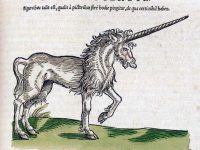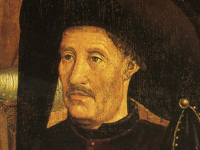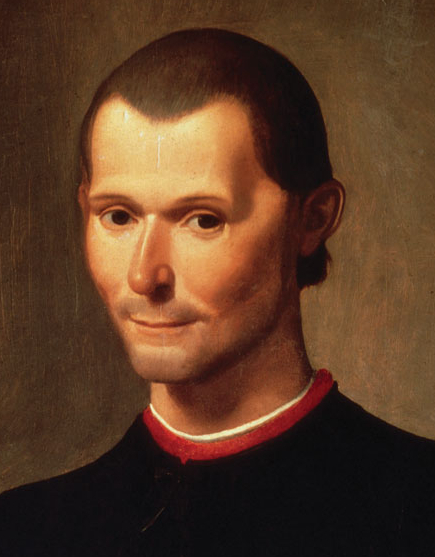
Niccoló Machiavelli (1469-1527)
On May 3, 1469, Florentine civil servant, diplomat, historian, philosopher and author Niccolò Machiavelli was born. Besides his seminal work ‘Il Principe‘ (The Prince) he is also known for writing comedies, carnival songs, and even poetry.
“One who deceives will always find those who allow themselves to be deceived.”
– Niccoló Machiavelli, Il Principe
Born in a Tumultous Area
Machiavelli was born in a tumultuous era in which popes waged acquisitive wars against Italian city-states, and people and cities often fell from power as France, Spain, the Holy Roman Empire, and Switzerland battled for regional influence and control. Political-military alliances continually changed, featuring condottieri (mercenary leaders), who changed sides without warning, and the rise and fall of many short-lived governments. In the first decade of the sixteenth century, he carried out several diplomatic missions: most notably to the Papacy in Rome.
The Purges of Savonarola
On 23 May 1498, the Dominican penitential preacher Girolamo Savonarola was burned as a heretic in Florence [5]. The subsequent “purges” made Machiavelli’s new position vacant, which immediately familiarized him with the hard side of politics. On 15 June 1498 he was elected State Secretary of the Second Chancellery of the Council of the Dieci di pace e di libertà (Council of the Ten) of the Republic of Florence, responsible for foreign and defence policy until 1512.
Cesare Borgia and Pope Alexander VI
Moreover, from 1502 to 1503, he witnessed the brutal reality of the state-building methods of Cesare Borgia (1475–1507) and his father, Pope Alexander VI, who were then engaged in the process of trying to bring a large part of Central Italy under their possession. The pretext of defending Church interests was used as a partial justification by the Borgias. Other excursions to the court of Louis XII and the Spanish court influenced his writings such as Il Principe.
“It ought to be remembered that there is nothing more difficult to take in hand, more perilous to conduct, or more uncertain in its success, than to take the lead in the introduction of a new order of things. Because the innovator has for enemies all those who have done well under the old conditions, and lukewarm defenders in those who may do well under the new. This coolness arises partly from fear of the opponents, who have the laws on their side, and partly from the incredulity of men, who do not readily believe in new things until they have had a long experience of them.”
– Niccoló Machiavelli, Il Principe
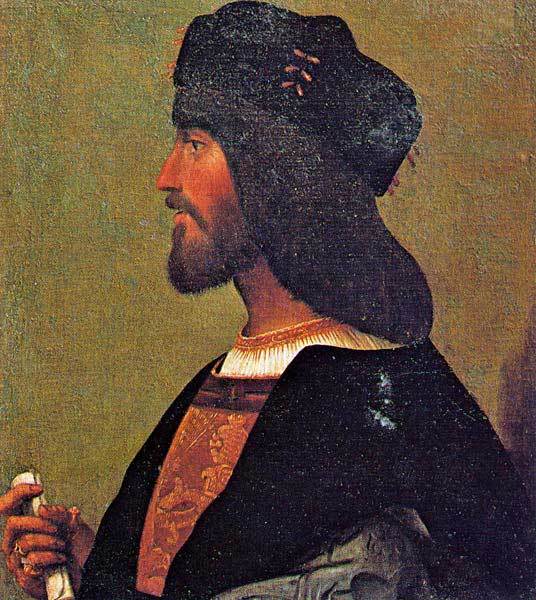
Cesare Borgia, Duke of Valentinois. According to Machiavelli, a risk taker and example of “criminal virtue”. Failed in the end because of one mistake: he was naïve to trust a new Pope.
Accusation of Conspiracy
However, Machiavelli’s success did not last. In August 1512 the Medici, backed by Pope Julius II, used Spanish troops to defeat the Florentines at Prato, but many historians have argued that it was due to Piero Soderini’s unwillingness to compromise with the Medici, who were holding Prato under siege. In the wake of the siege, Soderini resigned as Florentine head of state and left in exile. The experience would, like Machiavelli’s time in foreign courts and with the Borgia, heavily influence his political writings. After the Medici victory, the Florentine city-state and the republic were dissolved, and Machiavelli was deprived of office in 1512. In 1513 the Medici accused him of conspiracy against them and had him imprisoned. Machiavelli then retired to his estate at Sant’Andrea in Percussina, near San Casciano in Val di Pesa, and devoted himself to studying and writing of the political treatises that earned his place in the intellectual development of political philosophy and political conduct.
Il Principe – The Prince
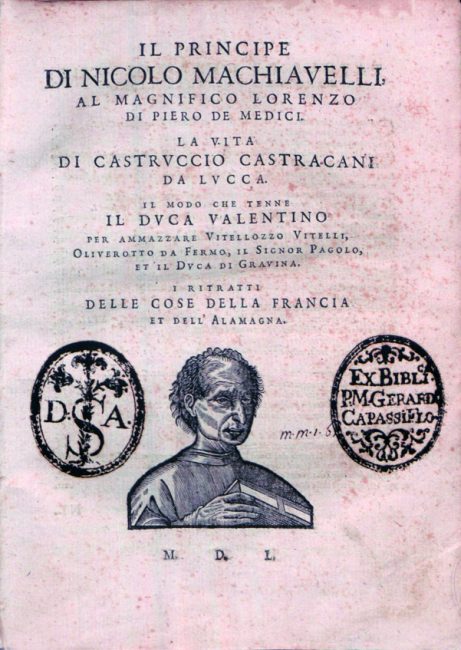
Cover page of 1550 edition of Machiavelli’s Il Principe and La Vita di Castruccio Castracani da Lucca.
‘Il Principe‘ contains a number of maxims concerning politics, but rather than the more traditional subject of a hereditary prince, it concentrates on the possibility of a “new prince.” To retain power, the hereditary prince must carefully maintain the socio-political institutions to which the people are accustomed; whereas a new prince has the more difficult task in ruling, since he must first stabilize his new-found power in order to build an enduring political structure. Machiavelli believed that social benefits of stability and security could be achieved in the face of moral corruption. Therefore, Machiavelli’s fame is ambiguous due to his support for reckless political power play.
“A prudent man should always follow in the path trodden by great men and imitate those who are most excellent. ”
– Niccoló Machiavelli, Il Principe
The Ends justify the Means
Scholars often note that Niccolò Machiavelli glorifies instrumentality in statebuilding, an approach embodied by the saying “The ends justify the means.” It should be noted that this quote has been disputed and may not come from Niccolò Machiavelli or his writings. Violence may be necessary for the successful stabilization of power and introduction of new legal institutions. Force may be used to eliminate political rivals, to coerce resistant populations, and to purge the community of other men strong enough of character to rule, who will inevitably attempt to replace the ruler. Machiavelli has become infamous for such political advice, ensuring that he would be remembered in history through the adjective, “Machiavellian”.
Niccolò Machiavelli died in 1527 at age 58 in Florence.
Steven B. Smith, 10. New Modes and Orders: Machiavelli’s The Prince (chaps. 1-12), [10]
Further Reading:
- [1] Niccolò Machiavelli, The Prince Incomplete translated by W. K. Marriott and introduced by Herbert Butterfield (1908)
- [2] Egon Friedell’s Fascinating Cutural Histories, SciHi Blog, March 16, 2018
- [3] Cogito Ergo Sum – The Philosophy of René Descartes, SciHi Blog, March 31, 2018
- [4] Niccoló Machiavelli at Wikidata
- [5] Girolamo Savonarola’s Bonfires of Vanity, SciHi Blog
- [6] Niccoló Machiavelli Timeline via Wikidata
- [7] Works by or about Macchiavelli at Wikisource
- [8] Works by or about Niccolò Machiavelli at Internet Archive
- [9] Machiavelli and the Italian City on the BBC’s In Our Time with Melvyn Bragg
- [10] Steven B. Smith, 10. New Modes and Orders: Machiavelli’s The Prince (chaps. 1-12), Introduction to Political Philosophy (PLSC 114), YaleCourses @ youtube
- [11] Wight, Martin (2005). Wight, Gabriele; Porter, Brian (eds.). Four Seminal Thinkers in International Theory: Machiavelli, Grotius, Kant, and Mazzini. Oxford: Oxford University Press.
- [12] Timeline of Niccoló Machiavelli, via Wikidata

